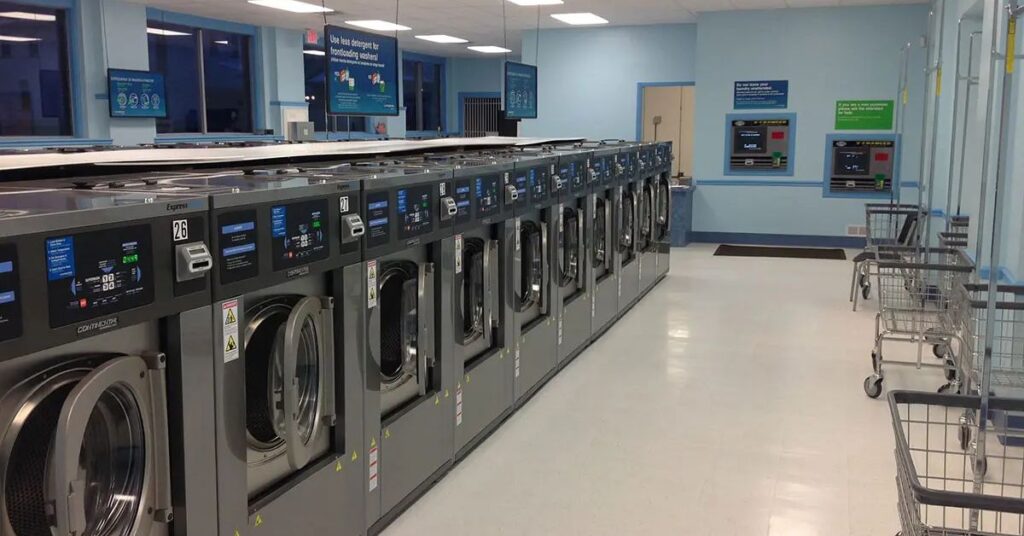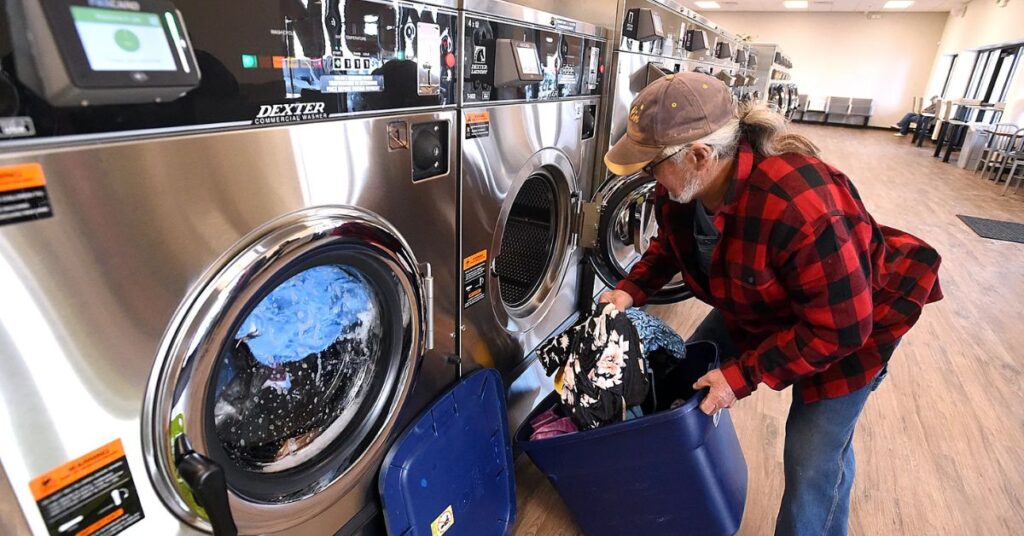Starting a coin laundry business can be a lucrative venture with the potential for steady income. To begin, conduct thorough research on the market to understand the demand for laundry services in your area. Identify your target market and assess the competition to determine your niche.
Once you have a clear understanding of the market, develop a comprehensive business plan. Outline your goals, strategies, and financial projections. Consider factors such as location, equipment costs, and operational expenses to ensure your plan is realistic and achievable.
Understanding the Business Model
First things first, it’s essential to grasp the fundamentals of the coin laundry business model. Coin laundries operate on a self-service basis, allowing customers to use coin-operated washing and drying machines to clean their clothes. This model offers convenience to customers who may not have access to laundry facilities in their homes or apartments.
Types of Coin Laundry Businesses

There are several types of coin laundry businesses you can consider:
Attended Laundromats
These offer a range of services beyond self-service, such as dry cleaning, wash-dry-fold, and tailoring. Attended laundromats can increase profitability by catering to diverse customer needs.
Franchise Model
Buying into a franchise offers the advantage of brand recognition and operational support. While it involves upfront franchise fees and revenue sharing, it can streamline the startup process.
Writing Your Business Plan
Before diving into the business, it’s crucial to develop a solid business plan. This serves as your roadmap, guiding your strategy and helping you secure funding for your venture. Here’s what your business plan should include:
Executive Summary
Provide a brief overview of your business and its potential for success.
Company Description
Detail your business concept, competitive advantages, and target market.
Market Analysis
Research the industry outlook, identify your target customers, and assess your competition.
Financial Plan
Outline your funding requirements, financial projections, and budget allocation.
Assessing Startup Costs
Startup costs can vary significantly depending on factors such as location, equipment, and renovations. Here’s a breakdown of the main expenses involved:
Initial Costs
Location
Leasing or purchasing premises can range from $100,000 to $1 million, depending on the area’s size and condition.
Equipment
Commercial-grade washers and dryers can cost $1,000 to $10,000 each, with total equipment costs ranging from $50,000 to $500,000.
Renovations
Expenses for plumbing, electrical work, and equipment installation can add up to $200,000 to $500,000.
Licensing and Permits
Budget for business licenses, permits, and fees, which can range from $100 to $1,000.
Ongoing Expenses

Utilities
Expect to spend several thousand dollars per month on water, electricity, and maintenance.
Staffing
Budget for employee salaries, ranging from $1,000 to $4,000 per month, depending on the number of employees.
Rent or Mortgage
Include monthly rent or mortgage payments in your budget.
Insurance
Plan for annual insurance costs of $500 to $2,000, depending on coverage levels.
Calculating Profits
While startup costs can be substantial, a well-managed coin laundry business can yield consistent profits over time. According to the Coin Laundry Association, coin laundromats can range in value from $50,000 to over $1 million. By offering quality service and meeting customer needs, you can expect your business to generate steady income for years to come.
Setting Up Your Business

Once you’ve outlined your business plan and budget, it’s time to set up your coin laundry business. Here are the key steps involved:
Choose a Business Structure
Decide on the legal structure of your business, whether it’s a sole proprietorship, partnership, LLC, or corporation. Each structure has its advantages and implications for taxes, liability, and management.
Register Your Business
Register your business with the appropriate state and local authorities. Obtain any required licenses, permits, and tax IDs to ensure compliance with regulations.
Secure Financing
Explore financing options such as business loans, lines of credit, or investors to fund your startup costs. Present your business plan and financial projections to potential lenders to secure funding.
Find a Location
Choose a strategic location for your coin laundry business, considering factors such as population density, demographics, and competition. Negotiate lease terms or purchase agreements for the premises.
Purchase Equipment
Invest in high-quality commercial washers and dryers for your coin laundry business. Consider factors such as capacity, energy efficiency, and durability when selecting equipment.
Implementing Effective Marketing Strategies

Implementing effective marketing strategies involves several key steps. Firstly, it’s crucial to understand your target audience thoroughly. This includes demographic information, preferences, and pain points. Armed with this knowledge, you can tailor your marketing efforts to resonate with your audience effectively.
Next, leverage data-driven insights to guide your decision-making process. Analyze metrics such as website traffic, conversion rates, and customer engagement to identify areas for improvement and optimization. By basing your strategies on empirical evidence rather than guesswork, you can maximize the impact of your marketing efforts.
Online Presence
Create a professional website and social media profiles to showcase your services and engage with customers online.
Local Advertising
Advertise in local newspapers, magazines, and community bulletin boards to reach potential customers in your area.
Special Promotions
Offer discounts, loyalty programs, and referral incentives to attract new customers and retain existing ones.
Community Engagement
Participate in local events, sponsorships, and charity drives to build goodwill and enhance your brand image.
Read As: How Much Is A Business License In California
Conclusion
Starting a coin laundry business can be a rewarding venture with the potential for long-term success. By understanding the business model, writing a comprehensive business plan, assessing startup costs, and implementing effective marketing strategies, you can build a thriving coin laundry business that meets the needs of your customers and generates steady profits. Follow the steps outlined in this guide, and you’ll be well on your way to opening a successful coin laundry business.
Frequently asked question
What are the main types of laundry business models?
The main types include coin-operated laundromats, private laundry within multi-tenant buildings, commercial laundry services, wash and fold services, and pickup and delivery services.
What are the startup costs associated with opening a coin laundry business?
Startup costs typically range from $200,000 to $1 million, covering expenses such as equipment, location leasing or purchasing, renovation, licensing fees, marketing, and initial operating expenses.
How can I finance my coin laundry business?
Common financing options include small business loans, personal savings, investor capital, franchise opportunities, or equipment financing. Exploring various financing avenues can help find the best fit for your business needs.
What factors should I consider when choosing a location for my coin laundry business?
Important factors include population density, demographics, competition, visibility, accessibility, parking availability, and local zoning and regulations. Conducting thorough market research is crucial for selecting the optimal location.
What are some effective marketing strategies for promoting a coin laundry business?
Effective marketing strategies include online advertising, community engagement, local partnerships, social media presence, promotions, referral programs, and offering exceptional customer service to attract and retain customers.

James, with 5 years of business experience, brings expertise to our website. His profile reflects a commitment to excellence and innovation in his field.







